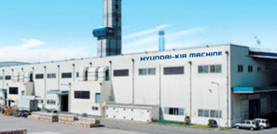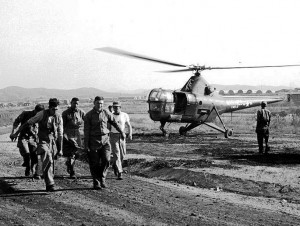
Even if short-lasting, once we get past U.S. causalities, a war in Korea would be devastating to the U. S. consumer economy.
The possibility of an active war on the Korean peninsula of Northeast Asia should be creating a lot more concern than it has in the United States. And, no, that’s not because it might become a meat-grinder of casualties for young American soldiers, sailors, airmen and Marines the way it did nearly 60 years ago.
The U. S. has only 28,000 troops in Korea now and is heavily committed, some say over committed, in Iraq and Afghanistan with virtually no support from our alleged allies. Even if short-lasting, once we get past U.S. causalities, a war in Korea would be devastating to the U. S. consumer economy, including the “big box” retailers like Cosco and Best Buy.
As I punch in the letters forming this article, they are appearing on a flat screen monitor made by Samsung, a South Korean conglomerate in a market that is closed to U.S. exports. Samsung also made the cell phone in my shirt pocket, and the TV in the family room. My wife’s new cell phone, like mine from Verizon Wireless, is manufactured by LG, another Republic of Korea electronics maker, once part of the Hyundai Group.
In the matter of a resumption of the Korean War, the Chinese are perhaps our best friends. Hyundai is unquestionably the most successful new car company in the American market. In the first five months of this year, the leading Korean car company retailed 287,302 Hyundai and Kia cars and trucks here, of which 212,446 were imported. Don’t even ask how many U.S. made cars were allowed to enter the closed Korean market. This export barrage made Hyundai the sixth largest vehicle seller in the U. S., only 2,000 fewer than fifth-place Nissan managed. But don’t look for them to weigh in on this issue of national security.
GM Daewoo delivered just 9,669 of the subcompact Chevrolet Aveo models in the period (Aside: where’s all that demand for small cars Washington Politicians keeps harping on?), but Daewoo is the source for a host of small Chevrolets sold all over the rest of the world.
The corporate headquarters of these Korean companies are located in Seoul, the world’s second largest city in population (20,550,000) after Tokyo. Seoul, unfortunately, is within howitzer distance, so to speak, of the DMZ border established by the 1953 UN-negotiated truce between democratic, uber-protectionist South Korea and a hard-line Communist dictatorship-ruled North Korea.
You couldn’t fire a rifle from the North into Seoul, but long-range artillery, probably, and rockets, which the North has been testing, for sure. Estimates vary but the North has 13,000 artillery tubes zeroed in on Seoul, and ten million South Koreans live within 30 miles of the DMZ The major exporting port of Incheon is right next door to Seoul.
North Korea is ruled by what I believe is a nut-case, Kim Jong II, who has just declared his 26-year-old son as heir apparent. Even worse is that the self-styled Democratic Peoples Republic of Korea (DPRK) military is naturally very powerful and seemingly equally irresponsible. I don’t have to repeat all the DPRK’s nuclear and ICBM saber-rattling that the mainstream media have been feasting on for years.
The Peoples Republic of China (PRC), on the other hand, is probably more nervous about instability in the DPRK than anyone in South Korea, Russia or the U.S. When I was on an educational mission sponsored by the U. S. State and Defense Departments to the PRC three years ago, our group heard from top Chinese officials who said that they fear war on the Korean peninsula could be touched off by mistake, especially a power-play within North Korea. What most Americans don’t realize is that China fears a domestic blow-up in the DPRK would migrate to the PRC, if for no other reason than the hordes of refugees it will create.
So in the matter of a resumption of the Korean War, the Chinese are perhaps our best friends, whereas the last time around their “volunteer army” swarmed over General MacArthur’s forces like hungry fleas over a dog. Fortunately, North Korea knows that if China cuts the umbilical cord of supply, they can’t go to war against anybody, even their own people.
There’s another report being circulated that the smaller South Korean armed forces could nevertheless defeat an invasion by the North because of better health, better training, modern weapons and the fact they’ve got something worth defending besides the abstract comfort of freedom.
Still, mistakes can happen.
The problem is, even with brief hostilities, there would be hell to pay in the American economy. Thousands of Hyundai, Kia, Chevrolet, Samsung and LG merchants, to name only a few, would soon find themselves without new products to sell or parts to repair them. And I get the impression from talking to one of the major Korean companies that there is no contingency plan should there be a war. They’re too busy cashing in on America’s thirst for their products.
So America’s stake in peaceful relations on the Korean peninsula is a lot closer to home than you might think.


What I understand from your article, is that if North Korea would like to harm South Korea, the United States, who are allies with South Korea, should not become involved due to companies located there? It does not matter if those companies drop their products to the United States, because the United States needs to learn to become self-sufficient like it was not to long ago. The United States is hurting for jobs and the lives of its citizens, ultimately the United States may prosper if it has to form companies in its own country again.